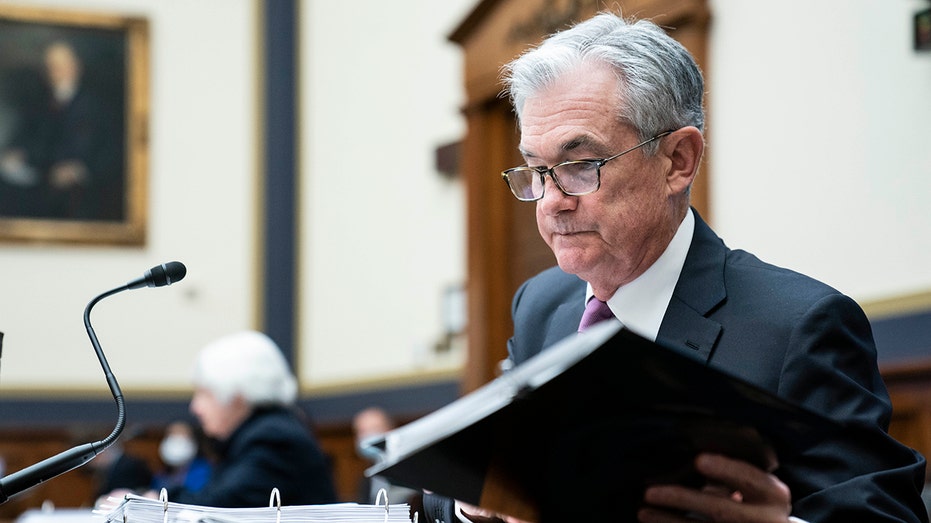White House dodges question about inflation, touts strength of economic recovery
Federal Reserve Chairman Jerome Powell says that he no longer believes inflation is transitory
Investors bet on whether inflation will get worse before it gets better
A 'Making Money' panel with Alicia Levine and Erin Gibbs on how to invest ahead of the latest CPI report and Federal Reserve meeting.
National Economic Council Director Brian Deese dodged a question about inflation Thursday, instead opting to tout the economic recovery from the pandemic.
Asked by a reporter during a Thursday press briefing about Federal Reserve Chairman Jerome Powell saying that he no longer believes inflation is transitory and that it would likely continue into the next year, Deese avoided commenting on how long inflation would last.
Instead, he pointed out the strength of other economic indicators such as the labor market and wages.

Federal Reserve Chairman Jerome Powell. (Sarah Silbiger-Pool/Getty Images) (Getty Images)
US HIRING STUMBLES IN NOVEMBER AS ECONOMY ADDS JUST 210,000 JOBS
"What we believe is that price increases elevated to the level that we're seeing hit American families and their pocketbooks, and we need to do everything we can to address those directly," Deese answered. "We also believe that the strength of our economic recovery, the strength of our labor market, and the strength of wage increases and the steps we've taken to try to provide some relief to American families will position our economy and American households uniquely well to address what is a global issue around price increases."
Deese's comments come after Powell last week told lawmakers that "it’s probably a good time to retire that word [transitory] and try to explain more clearly what we mean."

National Economic Council Director Brian Deese. (REUTERS/Mandel Ngan/Pool/File Photo) (Reuters)
"We tend to use [transitory] to mean that it won’t leave a permanent mark in the form of higher inflation," Powell said.
The statement was a shift from the Fed's previous position and that of the administration, which had consistently been that inflation would start falling throughout 2022.
But inflation has continued to exceed the Fed's expectations, prompting speculation that it might be forced to tighten monetary policy to combat it at the expense of the ongoing recovery.
GET FOX BUSINESS ON THE GO BY CLICKING HERE

President Biden (AP Photo/Evan Vucci / AP Newsroom)
The consumer price index, a metric that includes everyday products like fuel and groceries, rose 6.2% in October, the largest surge in inflation since 1990.
Fuel oil prices led the way, rising 12.3% in October as part of a 59.1% increase over the past year. Food prices were on the rise as well, with meat, poultry, fish and eggs rising 1.7% in October as part of an 11.9% increase year over year.
